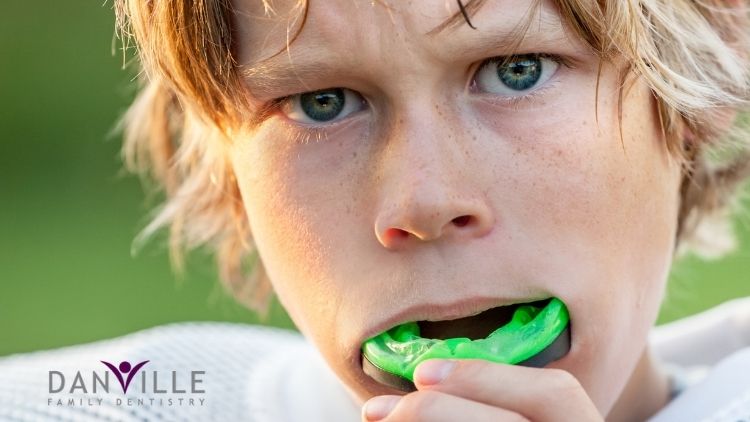When your child is ready to play a sport, parents take many factors into consideration. After you pay for just the right sized uniform, buy shoes (cleats or no cleats) and buy the right equipment to practice at home; you also need to think about protecting their teeth. After you pick out that perfect bat, or pop open those new shoulder pads—you also need to consider the best mouth guards available.
Nearly 20% of sports-related injuries are dental injuries. Your child is 60 times more likely to have a dental injury without a mouth guard. The CDC estimates that more than 3 million teeth are knocked out at sporting events. With all this risk, precaution is necessary. A mouth guard is your best defense.
What are Mouth Guards?
They are sometimes called mouth protectors. It is also important to note that mouth guards can be worn over braces. Mouth guards work by helping to cushion a blow to the face and minimizing the risk of broken teeth or cutting the tongue or cheeks. Mouth guards help reduce tooth loss and facial injuries.
Types to Consider
There are different types of mouth guards. They include:
Stock
These are the most inexpensive and least effective mouth guards. They are found at most sporting goods stores. They are good if there isn’t a lot of contact. Be aware they have been known to make breathing harder. They are bulky and can be ill-fitting. For more contact sports, like football or hockey—it is best to find a mouth guard that fits just right. It is much more effective.
Boil and Bite
This type is more “middle of the road” options for price and quality. Boil and Bite Mouth Guards are made of rubber that can be formed when heated. After you heat it, a child bites into the rubber to make it more form-fitting.
Custom Made
These mouth guards are the best fitting and can be made from various materials. Because they fit the best, they can provide the most protection. Many dentists offer custom made mouth guards.
Beyond Equipment Safety
In addition to mouth guards, we recommend young athletes maintain good dental hygiene habits. Not only are these habits good for dental health, but overall energy and physical health, too.
- Eat a balanced diets and avoid extra sugar—bars, gels, isotonic drinks, juices, or milkshakes are all sugary and some include acids that are detrimental to tooth enamel
- Drink water before, during, after physical activity
- Visit Danville Family Dental every six months for a check-up and cleaning.
- Maintain a healthy dental routine to brush teeth and gums, and don’t forget to floss
Parents have a Role in Youth Sports Dental Safety, Too
Parents not only provide the safest equipment, but they also emphasize the importance of it and how to properly use them. Youth has a way of thinking, “that’ll never happen to me.” Mom and Dad know better. Accidents happen to everyone. And, as always, parents are the watchdogs for continual physical and oral safety and health.
Sports that Require Mouth Guards
The American Dental Association (ADA) recommends the use of mouth guards for the following sports. (This list is not all-inclusive.) Many teams are following that lead and requiring them for youth players as well. As you can see, the list includes sports throughout the year, not just for one season. The same guards can be used for different sports, so custom-made guards are not only safest, but cost-effective, too.
- Basketball
- Boxing
- Hockey (Ice and Field and Roller)
- Football
- Lacrosse
- Martial Arts
- Racquetball
- Rugby
- Skateboarding
- Skiing
- Soccer
- Volleyball
- Water Polo
- Wrestling
Mouth guards should be a standard part of your child’s athletic equipment. In a 2011 study, the National Youth Sports Safety Foundation (NYSSF) says more than three million teeth are lost annually when children play sports. Before your child starts that next sport, make sure you contact us at Danville Family Dentistry at 317-745-4400 to make an appointment so your little rookie is off to a great start! We hope everyone has a great, safe season – in whatever sport they pursue!
Are you on Facebook? We are, too! Let’s be friends!
Disclaimer: The information included in this article is for educational purposes only. It should not be used as a substitute for professional medical advice, diagnosis or treatment.


 (317) 745-4400
(317) 745-4400
